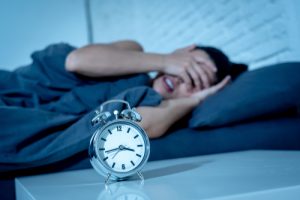Establishing a healthy and consistent circadian rhythm is not only important for our well-being, it could prove critical to one’s ability to fight the COVID-19 virus.
Circadian Rhythm Overview
Also categorized as an individual’s sleep-wake cycle, the circadian rhythm is defined by medical professionals as someone’s biological clock dictating when a person is most alert or in need of sleep. This rhythmic cycle is controlled by a part of the brain called the hypothalamus.
Factors Influencing Sleep-Wake Cycles
The circadian rhythm can be affected by several factors. Arguably, the most significant influencers are light and darkness. When darkness sets in, one’s eyes transmit tiredness signals to the brain, which releases a hormone known as melatonin. This chemical often induces a feeling of drowsiness. During daylight hours, the eyes are more alert and less likely to send signs of tiredness.
Circadian Rhythm Disorders
Maintaining an optimal sleep-wake cycle is vital to ensuring that a person obtains proper rest. Unfortunately, however, numerous issues can disrupt normal cycles and precipitate potentially serious sleep cycle disorders. Specific factors include pregnancy, night shifts, certain medications, systemic hormonal changes, jet lag and various medical and mental health conditions.
Symptoms of a Circadian Rhythm Disorder

Long-Term Impact
Chronic disruptions to one’s circadian rhythm could precipitate lasting, potentially significant health issues. Decreased sleep could result in several quite significant medical problems, including high blood pressure, cardiovascular issues, metabolic disorders like diabetes, various mental disturbances and weight gain.
Employing Circadian Rhythm to Fight Virus Causing COVID-19
Over the last month, the United States and the global community have been taken hostage by a new form of a pathogen known as the coronavirus, SARS-CoV-2, which causes the disease COVID-19. This microbe has killed thousands, sickened millions and reduced much of the world to lockdown status. Though measures like social distancing may be flattening the curve of incidents, hospitalizations and associated deaths, many people are still extremely frightened and willing to take whatever measures possible to prevent becoming infected by this silent and invisible beast.
Disrupted circadian rhythms limit an individual’s ability to successfully fight the COVID-19 virus. This is because a continual lack of sleep almost invariably leads to a weakened immune system. Adequate sleep is paramount to the body’s ability to fight off potential invaders like the COVID-19 virus as well as other less serious but prevalent microbes that cause the common cold and minor upper respiratory infections. Appropriate rest plays an even more critical role in the health of aging adults as their immune systems are not as strong as those typically seen in younger persons.
Improving One’s Sleep-Wake Cycle
Most healthcare professionals and sleep experts maintain that the average adult should receive anywhere from seven to nine hours of sleep per night. However, to accomplish this feat, some must take measures designed to improve their circadian rhythms. Fortunately, this can be achieved by adhering to the following practices:
Follow Consistent Schedules
Such advice might not always be simple. However, following a similar schedule each day often proves critical to establishing a firm sleep-wake cycle. Naturally, going to sleep at the same time every night might train the body to maintain a specific routine. However, noted experts also recommend adhering to a limited and consistent eating cycle as well. These medical professionals suggest only consuming edibles over an eight-to-twelve-hour period. Doing so often proves beneficial for the body’s numerous systems.
Obtain Sunlight
Another sometimes overlooked but important factor individuals can consider to fight the COVID-19 virus is to get sunlight exposure each day. Sleep experts maintain that getting at least 30 minutes of sun per day increases one’s mood and helps sync a person’s body clocks.





